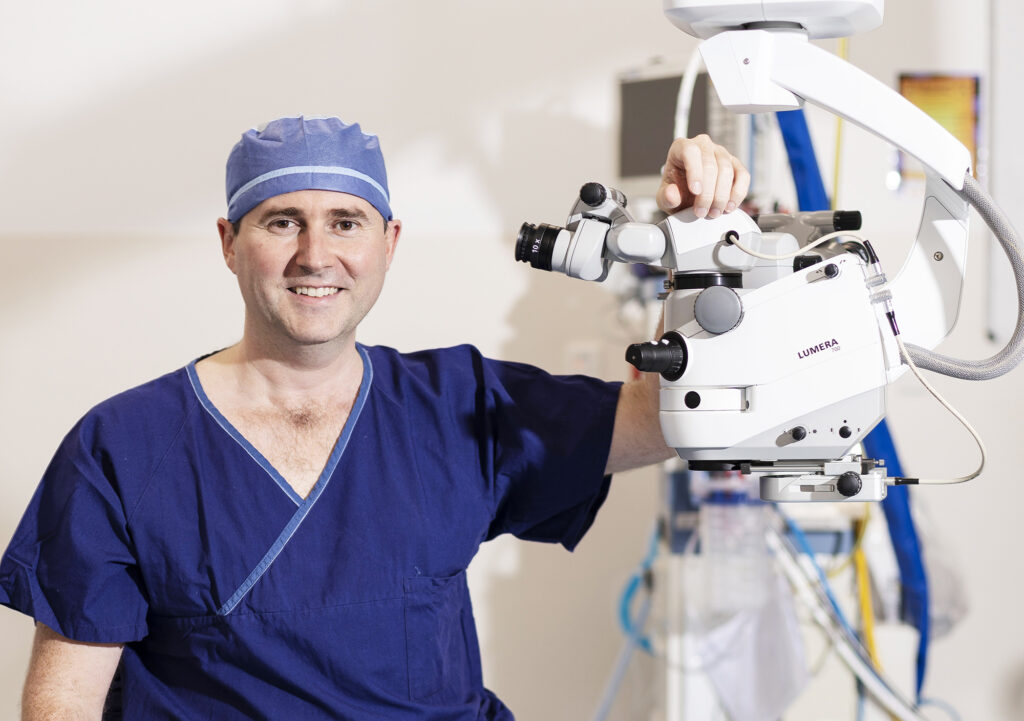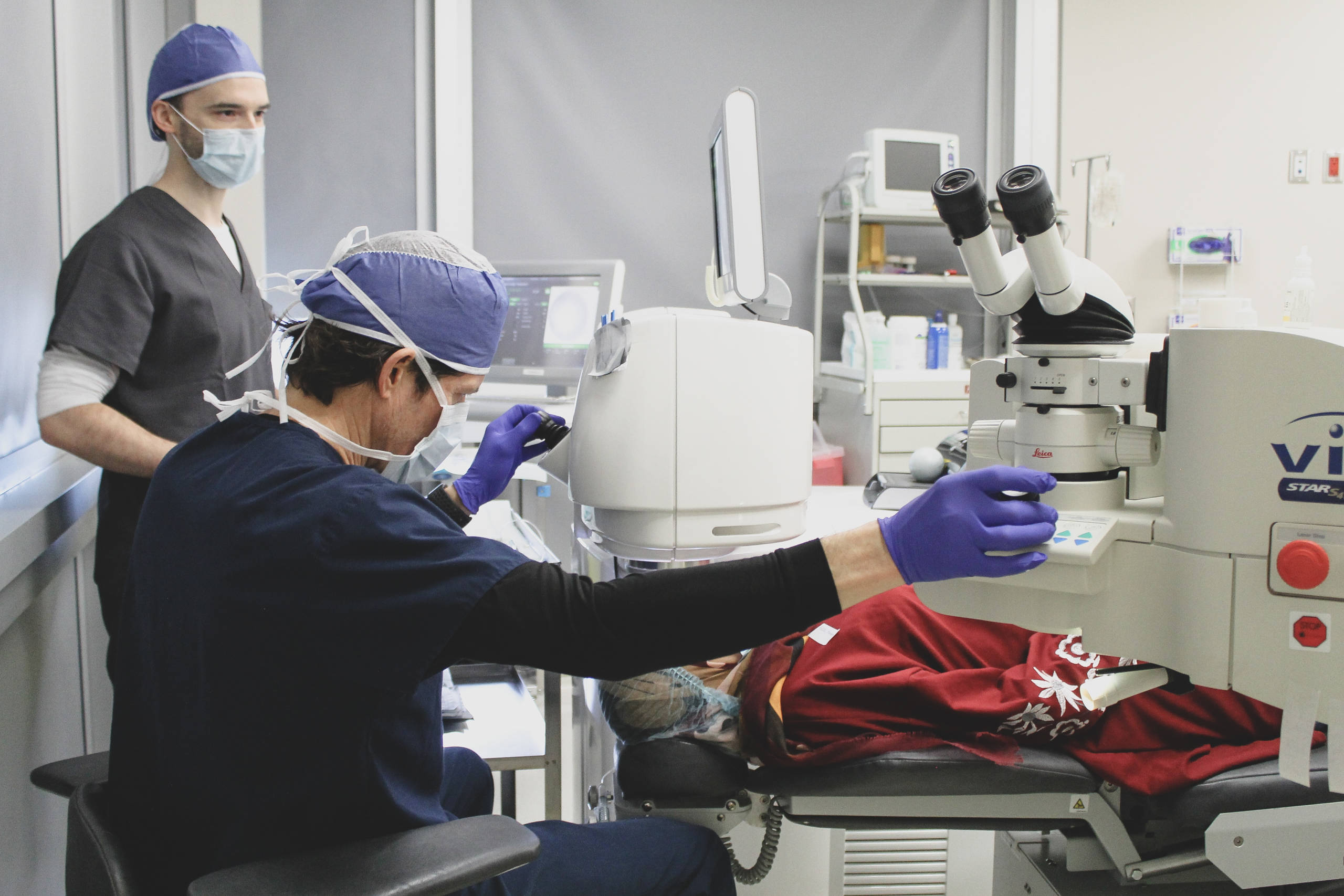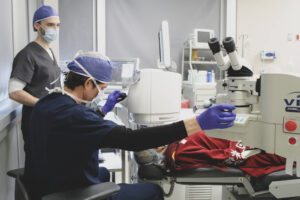Imagine this: you’re trying to read your favorite book, but the words seem like they’re behind a foggy window. Lights at night look like they’ve grown halos. You find yourself squinting to recognize your loved ones’ faces. If any of that sounds familiar, it might be time to talk about something you’ve likely heard of—cataract surgery.
As a compassionate eye doctor who’s guided countless patients through this journey, I want to gently help you understand what cataracts are, what signs to look out for, and how to know when surgery may be the right next step. If you or someone you care about is wondering whether it’s “too soon,” let me reassure you: this conversation is right on time.
What Are Cataracts, Exactly?
Let’s start simple. A cataract is a clouding of the eye’s natural lens—like your camera lens fogging up. This cloudiness happens slowly, over months or even years, and it affects how clearly you see the world.
Cataracts are most often a natural part of aging. In fact, over half of adults aged 80 and older have had cataracts or cataract removal. So if you’re in your 60s or 70s and things seem blurrier lately, you’re not alone—and you’re not imagining it.
The Top Signs It Might Be Time for Cataract Surgery
So how do you know when it’s really time to consider surgery? Here are some of the most common signs I hear about from patients who eventually say, “I wish I hadn’t waited so long.”
1. Your Glasses or Contacts Just Aren’t Cutting It Anymore
You’ve updated your prescription, maybe even twice in a year, and things still look blurry. That’s a major red flag. When cataracts progress, no amount of lens correction can bring back sharp vision—it’s not your glasses, it’s the cataract. click here to learn more about sleep disorders testing: identifying the root cause of your sleep issues
2. Driving at Night Feels Stressful or Unsafe
This is one of the earliest and most frustrating signs. Headlights seem too bright, and streetlights blur out like starbursts. For some, it feels downright dangerous. If night driving makes you nervous, it’s time to take your vision seriously.
3. Colors Look Faded or Yellowish
Patients often tell me, “I thought my couch was beige. Turns out it’s light blue!” Cataracts can make the world look dull, yellowed, or dim. After cataract removal, people are often amazed at how vibrant everything appears again.
4. You’re Struggling with Reading, TV, or Hobbies You Once Loved
If sewing, crossword puzzles, gardening, or watching television just isn’t enjoyable anymore because your vision gets in the way, it’s worth a closer look—literally and medically.
5. You’ve Had a Fall or Close Call
Cataracts can throw off your depth perception and balance. If you’ve missed a step, bumped into something, or tripped recently, it’s not just a coincidence. A growing cataract might be making daily life more dangerous than it should be.
6. You’re Relying on Others More Than Usual
Needing help reading menus, shopping, or filling out forms may be a quiet sign you’re adapting to worsening vision. If this sounds like you—or someone close to you—it’s worth getting an eye exam.

A Quick Word on Cataract Removal
I understand the idea of surgery can feel overwhelming. But cataract removal is one of the safest, most common surgeries performed today. It usually takes about 15 to 30 minutes, involves little to no pain, and doesn’t require an overnight hospital stay.
And the results? Life-changing. Most patients report vastly improved vision within a few days.
Real-Life: Margaret’s Story
Margaret, age 72, came into my office with her daughter. She had been avoiding driving at night, skipping her weekly card games, and didn’t realize how much she’d adapted to cloudy sight. After surgery, she told me:
“I didn’t know how bad it had gotten until I saw clearly again. I cried when I saw my grandkids’ faces without blur.”
Her story isn’t unusual—it’s beautifully common.
Common Questions I Hear (and Honest Answers)
“Isn’t surgery only for when you’re nearly blind?”
No. It’s about quality of life, not just legal blindness. If cataracts are interfering with your daily routine, it’s time to discuss options.
“What if I only notice vision problems sometimes?”
That’s actually quite normal early on. Cataracts often affect one eye more than the other, or cause problems in specific lighting conditions. The sooner it’s evaluated, the better.
“Will I need glasses after surgery?”
Maybe. It depends on the type of lens implant used. Some patients still use glasses for reading or fine detail, but many reduce their dependency dramatically.
Is It Time for You? Here’s How to Decide
Here’s a gentle checklist:
- Are you avoiding certain activities due to poor vision?
- Are your glasses less effective than they used to be?
- Have you felt unsafe driving, especially at night?
- Are you withdrawing socially or emotionally because of vision challenges?
If you answered “yes” to any of these, it might be time to talk with your eye doctor about cataract removal.
Conclusion: You Deserve to See Clearly Again
If you’ve been quietly adapting to cloudy vision, please know that you don’t have to. Cataract surgery isn’t just about your eyes—it’s about your independence, your joy, and your everyday moments.
You deserve to see the faces of the people you love clearly. You deserve to walk safely, enjoy a sunset, read a recipe, or admire your blooming garden without blur.
Don’t wait for things to get “bad enough.” Ask your eye care team today if it might be the right time for you. Because clearer vision means more than seeing—it means living.



